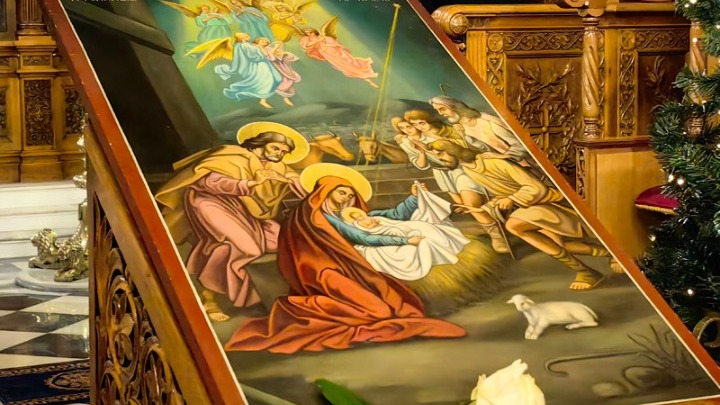Saint John Climacus the Righteous, author of The Divine Ladder of Ascent (30 March)


This Saint gave himself over to the ascetical life from his early youth. Experienced both in the solitary life of the hermit and in the communal life of cenobitic monasticism, he was appointed Abbot of the Monastery at Mount Sinai and wrote a book containing thirty homilies on virtue. Each homily deals with one virtue, and progressing from those that deal with holy and righteous activity (praxis) unto those that deal with divine vision (theoria), they raise a man up as though by means of steps unto the height of Heaven. For this cause his work is called “The Ladder of Divine Ascent.” The day he was made Abbot of Sinai, the Prophet Moses was seen giving commands to those who served at table. Saint John reposed in 603, at eighty years of age. See also the Fourth Sunday of the Fast.
John Climacus is the author of The Ladder of Divine Ascent. John came to Mount Sinai as a sixteen-year-old youth and remained there, first as a novice, later as a recluse, and finally as abbot of Sinai until his eightieth year, when he reposed, in about the year 649 A.D. His biographer, the monk Daniel, says about him: “His body ascended the heights of Sinai, while his soul ascended the heights of heaven.” He remained under obedience to his spiritual father, Martyrius, for nineteen years. Anastasius of Sinai, seeing the young John, prophesied that he would become the abbot of Sinai.
After the death of his spiritual father, John withdrew into a cave, where he lived a life of strict asceticism for twenty years. His disciple, Moses, fell asleep one day under the shade of a large stone. John, at prayer in his cell, saw that his disciple was in danger and prayed to God for him. Later, when Moses returned, he fell on his knees and gave thanks to his spiritual father for saving him from certain death. He related that in a dream he had heard John calling him, and that he had jumped up at the moment the stone had fallen. Had he not jumped, the stone would have crushed him.
At the insistence of the brotherhood, John agreed to become abbot, and he directed the salvation of the souls of men with zeal and love. Certain people reproached John for talking too much. Not at all angered by this, John nevertheless remained silent for an entire year. He did not utter a word until the brothers implored him to speak, and to continue teaching them his God-given wisdom. On one occasion, when six-hundred pilgrims came to the Monastery of Sinai, everyone saw an agile youth in Jewish attire serving at table, giving orders to other servants and assigning duties. Suddenly, this young man disappeared.
When everyone noticed this and began to ask questions, John said to them: “Do not seek him, for that was Moses the Prophet serving in his own place.” During his silence in the cave, John wrote many worthwhile books, of which the most glorious is The Ladder. This book is still read by many, even today. In this book, John describes the method of raising the soul to God, comparing it to the climbing of a ladder.
Before his death, John designated George, his brother in the flesh, as abbot. George grieved much because of his separation from John. Then John said to him that, if he were found worthy to be near God in the other world, he would pray to Him that George would be taken to heaven that same year. And so it came to pass. After ten months George fell asleep and settled among the citizens of heaven as his great brother, John, had done.
Apolytikion of John Climacus
Plagal of the Fourth Tone
With the rivers of your tears, you have made the barren desert fertile. Through sighs of sorrow from deep within you, your labors have borne fruit a hundred-fold. By your miracles you have become a light, shining upon the world. O John, our Holy Father, pray to Christ our God, to save our souls.
Kontakion of John Climacus
First Tone
As ever-blooming fruits, thou dost offer the teachings of thy God-given book, O wise John, thou most blessed, while sweet’ning the hearts of all them that heed it with vigilance; for it is a ladder from the earth unto Heaven that conferreth glory on the souls that ascend it and honour thee faithfully.





